Hey, Don't Cry. One Cup Heavy Whipping Cream, Two Tablespoons Granulated Sugar, Three Tablespoons Cocoa
hey, don't cry. one cup heavy whipping cream, two tablespoons granulated sugar, three tablespoons cocoa powder and whisk until stiff peaks form for three ingredient chocolate mousse, okay?
More Posts from Asathorin and Others

PSA
Cover of 天若有情 by A-Lin on guzheng

«ah yeah, it’s him. he is the one”
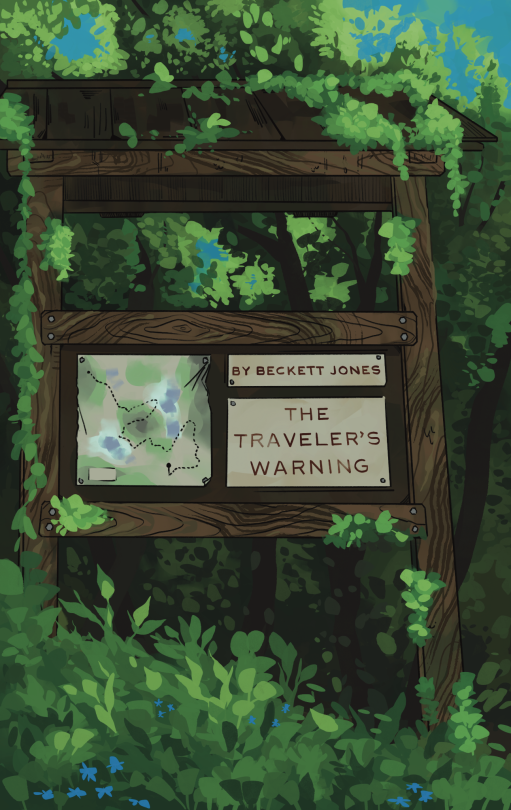



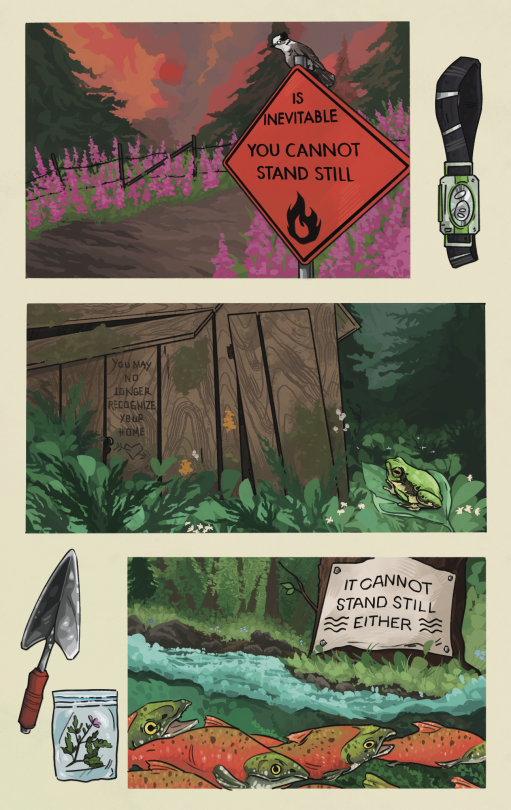



A short comic I made about my experiences as a seasonal worker, and the way places change you.
ok, but that would make it my best birthday ever

⬆️ DO NOT INVITE THIS MAN TO YOUR BIRTHDAY PARTY. HE WILL RUIN YOUR SPECIAL DAY FOR POLITICAL PURPOSES.
Finally watched Nimona!!!
It was so good!!!
However I am here to say one specific thing
It is so sad that it is so realistic that Nimona had to die (well 'die') for people to see her differently. Ultimately either you relate, or you love them enough to change yourself for them (we like to think of Ballister very positively but he benefited from both of these things), or you must make great risks and sacrifices for the mere chance for some to change. And it is very sad that this is realistic.


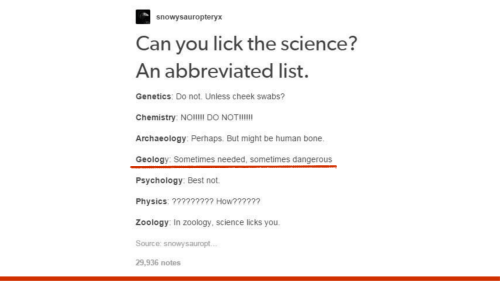


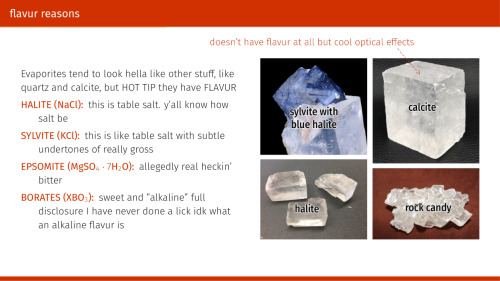
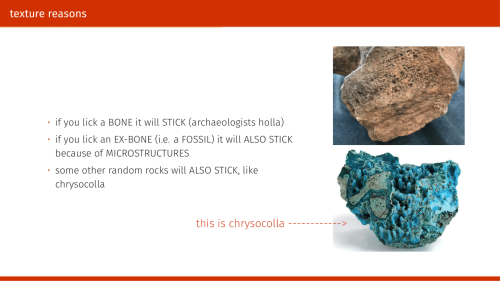
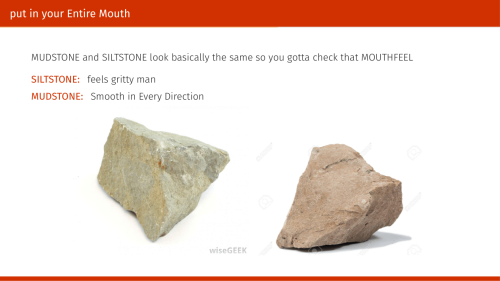

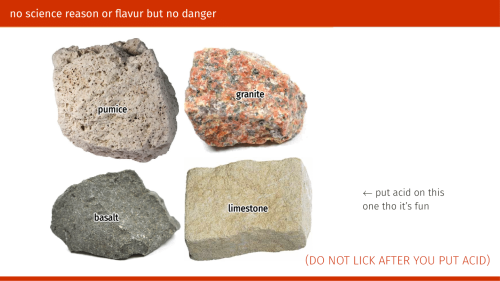





okay tumblr I think it’s time I tell you all about rocks chonch, I have given this talk three times and it has given everyone present Much To Think About, I am all about accessible education
very long transcript and photo sources under the cut
Afficher davantage
li lianhua's final letter to di feisheng
i hear the official eng subs weren't great so here's my own attempt at a translation (under a read more bc fuck it's Long)
edit: translated qiao wanmian’s letter to li xiangyi as well, which mirrors this one!
十年前
Ten years ago,
东海一决
during the duel of the eastern sea,
李某蒙兵器之利
this unworthy Li made benefit of whetted blade
借沉船之机与君一战犹不能胜
and capsizing boat whilst battling thee but was yet unvictorious.
君武勇之处
Thy martial prowess and valiance
世所罕见
are unexampled in this world.
心悦诚服
Mine heart delights in it, and by mine own will yields to thine eminence.
今事隔多年
The affairs of today are by many years separated.
沉疴难起
By pains alone would a lingering malady be cured.
剑断人亡
The sword hath broken—the man hath perished,
再不能赴东海之约
and can no more honour the accord to duel by the eastern sea.
谓为憾事
Such is the cause for most sincere regret.
余感念君所赠之忘川
I recall in deepest gratitude the flower of oblivion bequeathed by thee,
然终有负君之所望
yet did forsake all thou hadst longed for in the end.
江山多年
The rivers and mountains of this land have many years endured,
变化万千
their changes reckoned in the tens of thousands.
去去重去去
Partings upon partings, farewells upon farewells;
来时是来时
the coming times shall be the coming times.
方多病习我之功法
Fang Duobing hath been studied in my skills,
资质上佳
and his own endowments of the utmost excellence.
不暇多日
Shouldst he not keep idle days,
定不在明月沉西海之下
he shall surely be not beneath the bright moon sinking into the western sea.
君今无意逐鹿
Thou hast not now any desire to pursue the throne,
但求巅峰
but instead to seek the height of skill.
李某已去
This unworthy Li hath since gone;
若君意不平
if thy desire be not appeased,
足堪请其代之
he shall suit, shouldst thou bid him succeed me.
李相夷绝笔
Thus end the last words of Li Xiangyi.
footnotes
i've translated this letter into (my best attempt at) early modern english to try and reflect the formality li lianhua is writing in. also because he uses 君 for di feisheng throughout, which is a literary second-person pronoun, and i wanted to emphasise that. i know thou is actually the informal pronoun, but given how archaic it sounds in comparison to you, the actual formal pronoun in early modern english, i thought it a better fit. (for all the feihuas out there: 君 was also used by women to address their husbands, so actually i thought the informality might work in my favour here LOL)
if you saw this post before, you might have noticed that my translation of the third and fourth lines changed slightly lmao. ty to @/presumenothing for the reminder and ofc my fav @/bat1lau4can4 for talking through it with me and being the 文言文 expert i need <3
for the purposes of my goal in the above footnote, i've had to take some creative liberties in my choice of vocabulary. for example: unexampled is not quite an accurate translation of 罕见, which actually means rarely seen.
i phrased 心悦诚服 as mine heart ... yields but that's a somewhat liberal interpretation of the phrase lol. there is a heart in it; it's just maybe not the thing that's yielding, to be precise. close enough imo though!
江山 literally translates to rivers and mountains but is often used as a metaphor for a country as a whole, hence my translating it as the rivers and mountains of this land.
grammar is not as important as Vibes.
逐鹿, which i've translated as pursue the throne, literally means to chase the deer, and stems from the 《史记》 / records of the grand historian.
绝笔, rendered here as last words, specifically refer to the last words written by one before their death.



Source
Progress being made in Africa
How To Name Your Chinese Characters:
1) LAST NAMES:
I’ve pasted the Top 100 common last names in alphabetical order, and bolded the ones that appear in CQL:
B: 白 Bai C: 蔡 Cai ; 曹 Cao ; 常 Chang ; 曾 Ceng ; 陈 Chen ; 程 Cheng ; 崔 Cui ; D: 戴 Dai ; 邓 Deng ; 丁 Ding ; 董 Dong ; 杜 Du ; F: 范 Fan ; 方 Fang ; 冯 Feng ; 付 Fu ; G: 高 Gao ; 葛 Ge ; 龚 Gong ; 顾 Gu ; 郭 Guo ; H: 韩 Han ; 何 He ; 贺 He 洪 Hong ; 侯 Hou ; 黄 Hua ; 胡 Hu ; J: 贾 Jia ; 蒋 Jiang ; 姜 Jiang ; 江 Jiang ; 金 Jin ; K: 康 Kang ; L: 赖 Lai ; 李 Li ; 黎 Li ; 廖 Liao ; 梁 Liang ; 林 Lin ; 刘 Liu ; 陆 Lu ; 卢 Lu ; 路 Lu ; 吕 Lü ; 罗 Luo ; M: 马 Ma ; 麦 Mai ; 毛 Mao ; 孟 Meng ; N: 倪 Ni ; 牛 Niu ; P: 潘 Pan ; 彭 Peng ; Q: 钱 Qian ; 秦 Qin ; 邱 Qiu ; R:任 Ren ; S: 邵 Shao ; 沈 Sheng ; 史 Shi ; 石 Shi ; 施 Shi ; 宋 Song ; 苏 Su ; 孙 Sun ; T: 陶 Tao ; 谭 Tan ; 唐 Tang ; 田 Tian ; W: 万 Wan ; 王 Wang ; 汪 Wang ; 魏 Wei ; 吴 Wu ; X: 邢 Xing ; 夏 Xia ; 蕭 Xiao ; 谢 Xie ; 徐 Xu ; 许 Xu ; 薛 Xue ; Y: 阎 Yan ; 严 Yan ; 杨 Yang ; 姚 Yao ; 叶 Ye ; 余 Yu ; 于 Yu ; 袁 Yuan ; Z: 张 Zhang ; 赵 Zhao ; 郑 Zheng ; 钟 Zhong ; 周 Zhou ; 朱 Zhu ; 庄 Zhuang ; 邹 Zou ;
Above are all single character last names, but there are some double character Chinese last names, seen below (list not exhaustive):
独孤 Du’Gu ; 公孙 Gong’Sun ; 南宫 Nan’Gong 欧阳 Ou’Yang ; 司马 Si’Ma ; 上官 Shang’Guan ; 宇文 Yu’Wen ; 长孙 Zhang’Sun ; 诸葛 Zhu’GE ;
2) GIVEN NAMES/COURTESY NAMES
《Elements》:
Light*: 光 (guāng) - light, 亮 liàng - bright / shine, 明 (míng) - bright, 曦 (xī) - early dawn, 昀 (yún) - daylight, 昭 (zhāo) - light, clear,照 (zhào) - to shine upon,
Fire: 焰 (yàn) - flames, 烟 (yān) - smoke,炎 (yán) - heat/burn, 烨 (yè) - dazzling light,
Water: also see “weather” OR “bodies of water” under nature; note the words below while are related to water have meanings that mean some kind of virtue: 清 (qīng) - clarity / purity, 澄 (chéng) - clarity/quiet, 澈 (chè) - clear/penetrating, 涟 (lián) - ripple, 漪 (yī) - ripple, 泓 (hóng) - vast water, 湛 (zhàn) - clear/crystal, 露 (lù) - dew, 泠 (líng) - cool, cold, 涛 (tāo) - big wave,泽 (zé),浩 hào - grand/vast (water),涵 (han) - deep submergence / tolerance / educated
Weather: 雨 (yǔ) - rain, 霖 (lín) - downpouring rain, 冰 (bīng) - ice, 雪 (xuě) - snow, 霜 (shuāng) - frost
Wind: 风 (fēng) - wind
* some “Light” words overlap in meaning with words that mean “sun/day”
《Nature》:
Season: 春 (chūn) - spring, 夏 (xià) - summer, 秋 (qíu) - aumtum, 冬 (dōng) - winter
Time of Day: 朝 (zhāo) - early morning / toward, 晨 (chén) - morning / dawn, 晓 (xiǎo) - morning, 旭 (xù) - dawn/rising sun,昼 (zhòu) - day,皖 (wǎn) - late evening,夜 (yè) - night
Star/Sky/Space: 云 (yún) - cloud,天 (tiān) - sky/ heaven,霞 (xiá) - afterglow of a rising or setting sun,月 (yuè) - moon,日 (ri) - day / sun,阳 (yáng) - sun,宇 (yǔ) - space,星 (xīng) - star
Birds: 燕 (yàn) - sparrow, 雁 (yàn) - loon, 莺 (yīng) - oriole, 鸢 (yuān) - kite bird (family Accipitridae),羽 (yǔ) - feather
Creatures: 龙 (lóng) - dragon/imperial
Plants/Flowers:* 兰 (lán) - orchids, 竹 (zhú) - bamboo, 筠 (yún) - tough exterior of bamboos, 萱 (xuān) - day-lily, 松 (sōng) - pine, 叶 (yè) - leaf, 枫 (fēng) - maple, 柏 bó/bǎi - cedar/cypress, 梅 (méi) - plum, 丹 (dān) - peony
Mountains: 山 (shān), 峰 (fēng) - summit, 峥 (zhēng),
Bodies of water: 江 (jiāng) - large river/straits, 河 (hé) - river, 湖 (hú) - lake, 海 (hǎi) - sea, 溪 (xī) - stream, 池 (chí) - pond, 潭 (tán) - larger pond, 洋 (yáng) - ocean
* I didn’t include a lot of flower names because it’s very easy to name a character with flowers that heavily implies she’s a prostitute.
《Virtues》:
Astuteness: 睿 ruì - astute / foresight, 智 (zhi), 慧 (hui), 哲 (zhé) - wise/philosophy,
Educated: 博 (bó) - extensively educated, 墨 (mo) - ink, 诗 (shi) - poetry / literature, 文 (wén) - language / gentle / literary, 学 (xue) - study, 彦 (yàn) - accomplished / knowledgeable, 知 (zhi) - to know, 斌 (bīn) - refined, 赋 (fù) - to be endowed with knowledge
Loyalty: 忠 (zhōng) - loyal, 真 (zhēn) - true
Bravery: 勇 (yǒng) - brave, 杰 (jié) - outstanding, hero
Determination/Perseverance: 毅 (yì) - resolute / brave, 恒 (héng) - everlasting, 衡 (héng) - across, to judge/evaluate,成 (chéng) - to succeed, 志 (zhì) - aspiration / the will
Goodness/Kindness: 嘉 (jiā) - excellent / auspicious,磊 (lěi) - rock / open & honest, 正 (zhèng) - straight / upright / principle,
Elegance: 雅 (yǎ) - elegant, 庄 (zhuāng) - respectful/formal/solemn, 彬 (bīn) - refined / polite,
Handsome: 俊 jùn - handsome/talented
Peace: 宁 (níng) - quietness/to pacify, 安 (ān) - peace, safety
Grandness/Excellence:宏 (hóng) - grand,豪 (háo) - grand, heroic,昊 (hào) - limitless / the vast sky,华 (huá) - magnificent, 赫 (hè) - red/famous/great, 隆 (lóng) - magnificent, 伟 (wěi) - greatness / large,轩 (xuān) - pavilion with a view/high,卓 (zhuó) - outstanding
Female Descriptor/Virtues/Beauty: 婉 (wǎn),惠 (huì), 妮 (nī), 娇 (jiāo), 娥 (é), 婵 (chán) (I didn’t include specific translations for these because they’re all adjectives for women meaning beauty or virtue)
《Descriptors》:
Adverbs: 如 (rú) - as,若 (ruò) - as, alike,宛 (wǎn) - like / as though,
Verbs: 飞 (fēi) - to fly, 顾 (gù) - to think/consider, 怀 (huái) - to miss, to possess, 落(luò) - to fall, to leave behind,梦 (mèng) - to dream, 思 (sī) - to consider / to miss (someone),忆 (yì) - memory, 希 (xī) - yearn / admire
Colours: 红 (hóng) - red, 赤 (chì) - crimson, 黄 (huàng) - yellow, 碧 (bì) - green,青(qīng) - azure,蓝 (lán) - blue, 紫 (zǐ) - violet ,玄 (xuán) - black, 白 (baí) - white
Number:一 (yī), 二 (er) - two, 三 (san) - three, 四 (si) - four, 五 (wu) - five, 六 (liu) - six, 七(qi) - seven, 八 (ba) - eight, 九 (jiu) - nine, 十 (shi) - ten
Direction: 东 (dōng) - east, 西 (xi) - west, 南 (nan) - south, 北 (bei) - north,
Other: 子 (zǐ) - child, 然 (rán) - correct / thusly
《Jade》: *there are SO MANY words that generally mean some kind of jade, bc when ppl put jade in their children’s name they don’t literally mean the rock, it’s used to symbolize purity, goodness, kindness, beauty, virtue etc* 琛 (chen), 瑶 (yao), 玥 (yue), 琪 (qi), 琳 (lin)
《Spirituality》
凡 (fan) - mortality
色 (se) - colour, beauty. In buddhism, “se” symbolizes everything secular
了 (liao) - finished, done, letting go
尘 (chen) - dust, I’m not… versed in buddhism enough to explain “chen”, it’s similar to “se”
悟 (wu) - knowing? Cognition? To understand a higher meaning
无 (wu) - nothing, the void, also part of like “letting go”
戒 (jie) - to “quit”, but not in a bad way. In buddhism, monks are supposed to “quit” their earthly desires.
极 (ji) - greatness, also related to the state of nirvana (? I think?)
-
 saltyoceanmars liked this · 2 weeks ago
saltyoceanmars liked this · 2 weeks ago -
 gothstinpowers reblogged this · 2 weeks ago
gothstinpowers reblogged this · 2 weeks ago -
 gothstinpowers liked this · 2 weeks ago
gothstinpowers liked this · 2 weeks ago -
 roohfully reblogged this · 2 weeks ago
roohfully reblogged this · 2 weeks ago -
 texasdreamer01 reblogged this · 2 weeks ago
texasdreamer01 reblogged this · 2 weeks ago -
 crazzedknitter reblogged this · 2 weeks ago
crazzedknitter reblogged this · 2 weeks ago -
 aquaforce liked this · 2 weeks ago
aquaforce liked this · 2 weeks ago -
 aoiyuuzora reblogged this · 2 weeks ago
aoiyuuzora reblogged this · 2 weeks ago -
 0lgerd reblogged this · 2 weeks ago
0lgerd reblogged this · 2 weeks ago -
 mrdarcysunderpants liked this · 2 weeks ago
mrdarcysunderpants liked this · 2 weeks ago -
 suspicious-river liked this · 2 weeks ago
suspicious-river liked this · 2 weeks ago -
 almostbutstillnotdead reblogged this · 2 weeks ago
almostbutstillnotdead reblogged this · 2 weeks ago -
 almostbutstillnotdead liked this · 2 weeks ago
almostbutstillnotdead liked this · 2 weeks ago -
 a-travelers-tales reblogged this · 2 weeks ago
a-travelers-tales reblogged this · 2 weeks ago -
 fluffyhummel reblogged this · 2 weeks ago
fluffyhummel reblogged this · 2 weeks ago -
 fluffyhummel liked this · 2 weeks ago
fluffyhummel liked this · 2 weeks ago -
 the-alice-of-hearts reblogged this · 2 weeks ago
the-alice-of-hearts reblogged this · 2 weeks ago -
 the-alice-of-hearts reblogged this · 2 weeks ago
the-alice-of-hearts reblogged this · 2 weeks ago -
 thesundog liked this · 2 weeks ago
thesundog liked this · 2 weeks ago -
 rabbitdarling liked this · 2 weeks ago
rabbitdarling liked this · 2 weeks ago -
 mirrorthoughts reblogged this · 2 weeks ago
mirrorthoughts reblogged this · 2 weeks ago -
 vmures reblogged this · 2 weeks ago
vmures reblogged this · 2 weeks ago -
 vmures liked this · 2 weeks ago
vmures liked this · 2 weeks ago -
 thaliaisalesbian reblogged this · 2 weeks ago
thaliaisalesbian reblogged this · 2 weeks ago -
 jesterfrog liked this · 3 weeks ago
jesterfrog liked this · 3 weeks ago -
 iciclecrown reblogged this · 3 weeks ago
iciclecrown reblogged this · 3 weeks ago -
 aeristan liked this · 3 weeks ago
aeristan liked this · 3 weeks ago -
 bakersgrief liked this · 3 weeks ago
bakersgrief liked this · 3 weeks ago -
 placeholder-mcd liked this · 3 weeks ago
placeholder-mcd liked this · 3 weeks ago -
 achromaticabberation reblogged this · 3 weeks ago
achromaticabberation reblogged this · 3 weeks ago -
 rainywithachanceofstars liked this · 3 weeks ago
rainywithachanceofstars liked this · 3 weeks ago -
 copperspecks liked this · 3 weeks ago
copperspecks liked this · 3 weeks ago -
 valhallamercury liked this · 3 weeks ago
valhallamercury liked this · 3 weeks ago -
 wafflecoffeequeen reblogged this · 3 weeks ago
wafflecoffeequeen reblogged this · 3 weeks ago -
 hijedelbosque liked this · 3 weeks ago
hijedelbosque liked this · 3 weeks ago -
 kristannafever reblogged this · 3 weeks ago
kristannafever reblogged this · 3 weeks ago -
 kristannafever liked this · 3 weeks ago
kristannafever liked this · 3 weeks ago -
 poetic-spoon liked this · 3 weeks ago
poetic-spoon liked this · 3 weeks ago -
 reallifesupergirl liked this · 3 weeks ago
reallifesupergirl liked this · 3 weeks ago -
 ishipgayshitsblog liked this · 3 weeks ago
ishipgayshitsblog liked this · 3 weeks ago -
 sweet-lady-annatar reblogged this · 3 weeks ago
sweet-lady-annatar reblogged this · 3 weeks ago -
 sweet-lady-annatar liked this · 3 weeks ago
sweet-lady-annatar liked this · 3 weeks ago -
 trickymxtape reblogged this · 3 weeks ago
trickymxtape reblogged this · 3 weeks ago -
 shiissupercool liked this · 3 weeks ago
shiissupercool liked this · 3 weeks ago -
 karleyn reblogged this · 3 weeks ago
karleyn reblogged this · 3 weeks ago -
 itsmeezra reblogged this · 3 weeks ago
itsmeezra reblogged this · 3 weeks ago -
 itsmeezra liked this · 3 weeks ago
itsmeezra liked this · 3 weeks ago -
 alysenwanderland reblogged this · 3 weeks ago
alysenwanderland reblogged this · 3 weeks ago -
 mysongsknowwhatyoudidinthedark reblogged this · 3 weeks ago
mysongsknowwhatyoudidinthedark reblogged this · 3 weeks ago
